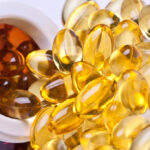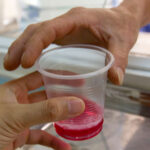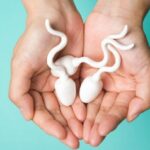Under normal circumstances, cervical fluid lubricates the vaginal mucosa, keeping the vagina smooth and elastic. Cervical fluid also has other functions besides lubricating the vaginal canal, helping to reduce vaginal dryness.
According to experts, mucus makes it easier for sperm to reach and fertilize the egg. This becomes extremely important for couples who want to get pregnant but the husband has low sperm count.
1. Some causes of vaginal dryness in women
Vaginal dryness can occur at any age, but there are two ages most susceptible to vaginal dryness: premenopausal women and postpartum women. However, nowadays, due to pressure from life, family, work, polluted environment, irregular eating and sleeping, the rate of young women suffering from vaginal dryness is increasing.
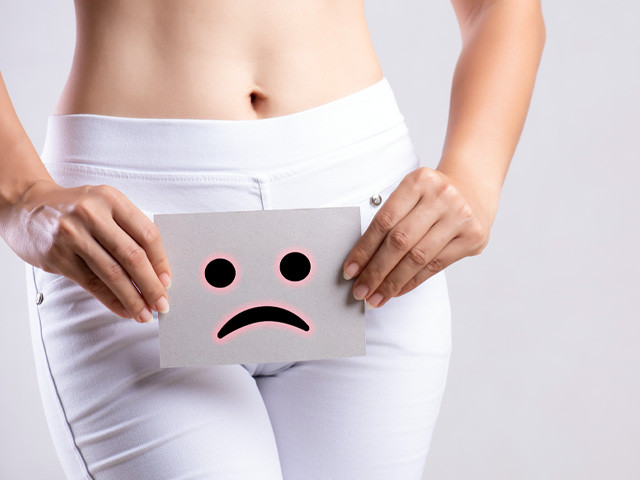
Vaginal dryness is defined by low or negligible amounts of cervical fluid. Vaginal dryness is caused by the female hormone estrogen, which regulates the production of cervical fluid. According to Dr. Tanveer Aujla, Senior Consultant Obstetrician and Gynecologist, Motherhood Hospital, Noida (India), stress, medication side effects, hormonal fluctuations or even lack of foreplay can all contribute causes this phenomenon.
Dr. Tanveer Aujla reveals that using feminine sprays and harsh soaps, pool and hot tub chemicals, and certain laundry detergents are also linked to pre-menopausal vaginal dryness. menopausal period. Medications that dry out mucous membranes include allergy and cold medications, as well as some antidepressants that also cause vaginal dryness.
2. Vaginal dryness and fertility
Is vaginal dryness a sign of infertility? According to experts, although vaginal dryness is not a direct cause of infertility, it is certainly a contributing factor to successful conception.
According to BS. Nguyen Thai Ha – former Head of Medical Examination Department, Tu Du Hospital, Ho Chi Minh City, the worst consequence of vaginal dryness is the impact on marital relations. This condition causes pain and decreased sexual desire on both sides. Furthermore, when the vagina is dry, the mucous membrane becomes thinner and peels easily. If you have sex, it will cause scratches, bleeding and make you more susceptible to vaginal infections. In addition, vaginal dryness also hinders the ability to conceive and affects reproductive health.
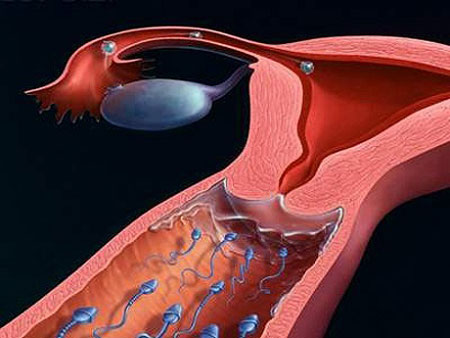
Cervical mucus is important during conception because it allows sperm to survive and swim from the cervix into the uterus and then into the fallopian tubes. Couples who do not have enough cervical mucus during intercourse may experience pain and tension, especially if they are trying to conceive. Vaginal dryness also significantly impacts a couple’s sex life , reducing sexual desire. Other typical problems that affect the quality of sexual life include burning sensation, itching, and vaginal irritation.
In severe cases, cervical mucus changes to an overly acidic state or immune problems or sperm allergies make it impossible for women to get pregnant. If you are trying to conceive naturally, this can be a serious problem.
3. Treatment methods for vaginal dryness
Vaginal dryness is a common problem but can be treated. Topical estrogen therapy is one of the most commonly used treatments for vaginal dryness . Other methods include:
• Tablets: Insert into the vaginal canal using a disposable applicator.
• Cream: Apply to the vaginal area using a specialized applicator.
• Water-based lubricants: Recommended for vaginal dryness caused by temporary hormonal changes, such as childbirth or breastfeeding.
• Hormone replacement therapy: This can be an effective treatment for menopausal vaginal dryness. It helps balance hormones, which can improve vaginal moisture and sexual desire.
• Do not use chemicals: Chemical detergents can irritate vaginal tissue and aggravate symptoms of vaginal dryness. You should avoid douching and do not use spermicidal condoms and other spermicidal products when trying to get pregnant.
• Stress relievers: Women should access stress reduction strategies to help reduce vaginal dryness and increase sexual quality.
• Vaginal moisturizers are also used 2-3 times per week and have a long-lasting effect, providing essential comfort to sensitive areas and preventing vaginal dryness from becoming severe.




